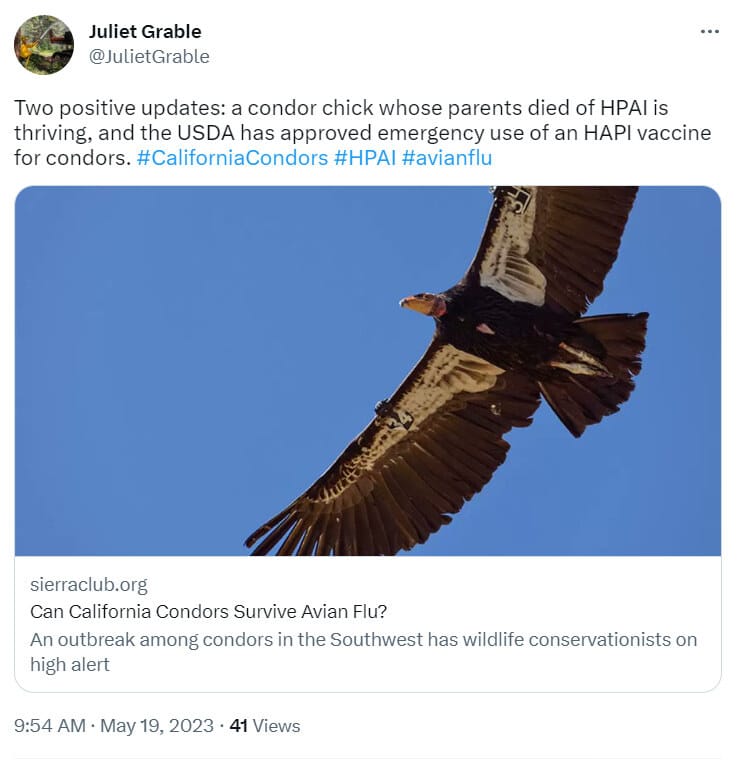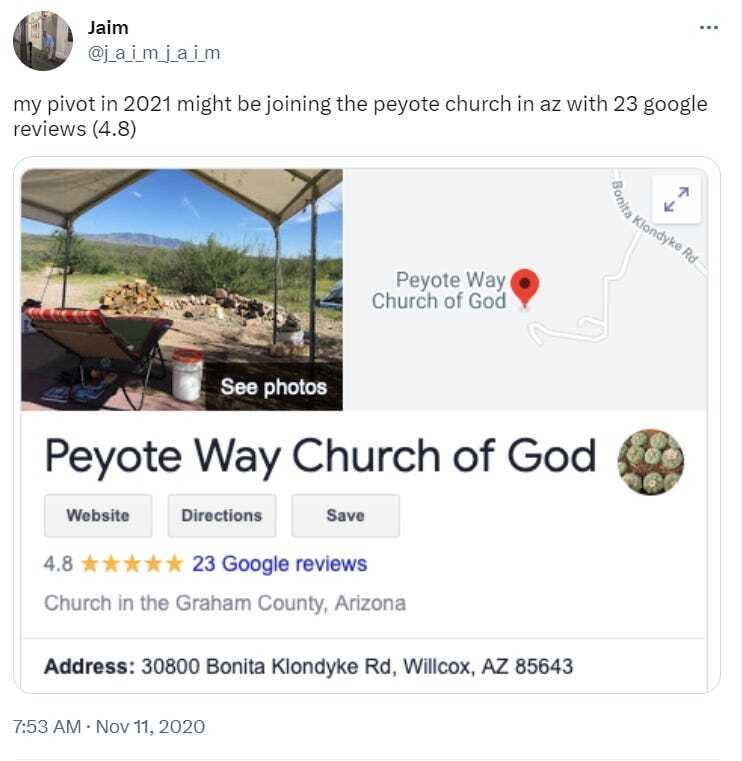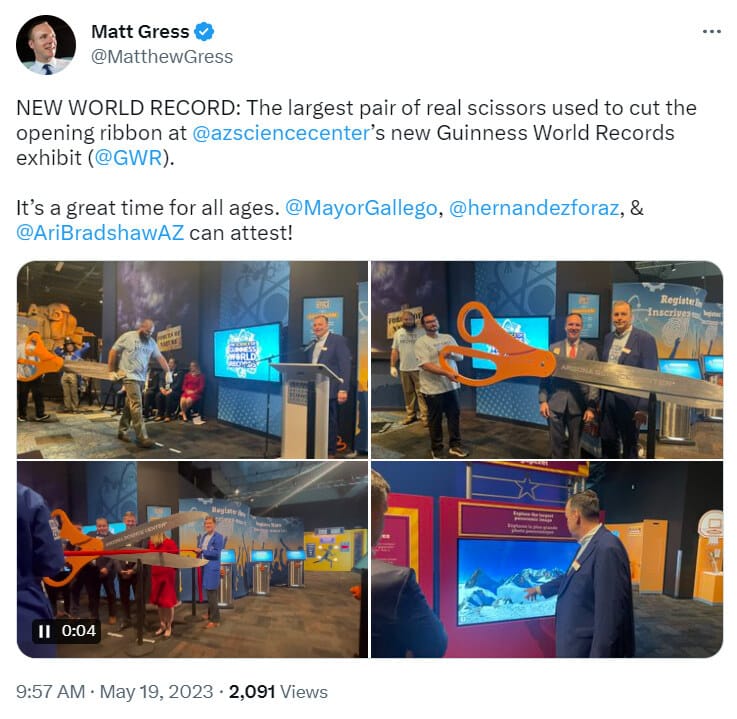Lawmakers and Gov. Katie Hobbs hammered through the stalemate of bipartisan budget negotiations by handing a pot of cash to every lawmaker who agreed to vote for it.
And the resulting cascade of one-time money is helping to patch up some long-ignored needs in rural Arizona.
We’re often quick to label lawmakers’ priorities “pet projects” and their spending allotments “slush funds,” but a string of stories in local papers shows how critical and long-overdue many of these “pet projects” are to the local communities lawmakers are elected to represent.

From Yuma to the Navajo Nation, municipalities are breathing a sigh of relief that roads, bridges, water projects and school roofs are finally getting fixed thanks to this year’s nearly $18 billion budget, including roughly $2 billion that lawmakers divvied up and earmarked for one-time projects. After decades of pushing more and more costs onto local municipalities, lawmakers are actually receiving applause from local mayors and county supervisors this year for their attention to local needs.
In Winslow, for example, the state budget will pay out $20 million to finally complete the Winslow Levee project, which will protect most of the town’s residents “after years of living with the threat of flooding destroying everything they’ve struggled to build,” the White Mountain Independent’s Peter Aleshire reports. The Federal Emergency Management Agency decertified the levee back in 2008, Aleshire notes, and that has cost the county far more in flood insurance and hindered economic development in the area. The levee is critical to protecting not just the town, but the major railroad line that runs through it carrying about $35 billion worth of freight annually and the Interstate 40 bridges over the Little Colorado River, Aleshire notes.
“I was so happy I couldn’t contain myself. I appreciate everyone’s help in keeping an eyeball on the levee,” Navajo County Supervisor Fern Benally said of the new spending.
Lake Havasu will get $35 million to build a second bridge and alleviate traffic over the historic London Bridge1 — a project that has been a priority for the town for years. The budget also ponies up $9 million to fix up substations for the Mohave County Sheriff’s Office, which the local sheriff said were becoming liabilities because of the snakes, mice and scorpions that had taken up residence there, Havasu News’ MacKenzie Dexter reports. And that’s not to mention the funding for local highways and water recharge basins.
Peoria cops got a bunch of new tools, and the city got $10 million for wells and water infrastructure, freeing up city funds that would have paid for the upgrades, the Daily Independent’s Philip Haldiman reports.
In Tombstone and Huachuca City, four school buildings will get new roofs from the money earmarked for school improvements, the Herald-Review’s Dana Cole reports.
In Pinal County, the budget will upgrade outdated and dangerous highways in areas that have seen explosive population growth in recent years with little state investment to match, Pinal Central’s Kimlye Stager reports.
In each of the local newspaper stories above, local officials praised their lawmakers for the much-needed funding. That’s a far cry from the kinds of stories we usually see after a state budget, in which local officials complain about more cost shifts from the state government.
But it’s worth remembering that many of those cost shifts continue.
This year, Pima County expects to shoulder an additional $16 million in cost shifts from the state, the Daily Star’s Nicole Ludden reports. That brings the total to about $112 million annually for things like health care, long-term care, juvenile courts and justice courts. And supervisors are passing that cost on to taxpayers, letting them know that their property taxes increased because of legislative cost shifts.
Lawmakers deserve a pat on the back for bringing home the bacon on some roads, bridges and wells. But let’s not forget a big part of why those things are so desperately needed to begin with: For more than a decade, lawmakers have fueled the state budget’s spending (and tax cuts) by shifting costs that the state used to cover onto cities and counties.

She’s got a lot of thoughts: Attorney General Kris Mayes acknowledged the attorneys in her office were prosecuting the AHCCCS scam involving tricking and kidnapping Native American people and others to bill the state for fake rehab services long before she took office. But former AG Mark Brnovich and former Gov. Doug Ducey and his AHCCCS director “allowed this to happen” by not cutting off the flow of money, she told 12News’ Brahm Resnik on “Sunday Square Off.” She backed off a threat she had issued to file a lawsuit if the budget didn’t better fund her office, but called out lawmakers and Gov. Katie Hobbs for funding the Prescott Rodeo grounds instead of her office. She accused the department of Water Resources of breaking the law and also said her office would start looking for fraud in the ESA program.

Hockey team seeking forever home: Glendale officials who dealt with decades of drama with the Arizona Coyotes stadium say they think Tempe voters dodged a bullet by shooting down a proposal to house the hockey team there. City Manager Kevin Phelps told the Republic’s Renata Cló that he expected voters to approve it, then never see the project finished, while Vice Mayor Joyce Clark said she didn’t want to see Tempe caught “in the drama of a financial maelstrom just as Glendale had been.” Mayor Jerry Weiers, for his part, didn’t feel the need to rub it in, telling Cló that he hopes the team stays in Arizona. Meanwhile, AZFamily’s Dennis Welch gets the scoop that the team has already called the city of Mesa to talk about moving there.
Bad times at Central Arizona College: Police charged Central Arizona College Vice President of Business Affairs and CFO Chris Wodka with manslaughter, saying he failed to yield and hit and killed a 25-year-old motorcyclist, possibly while under the influence, Pinal Central’s Jodie Newell reports. Meanwhile, CAC Governing Board member Jerry Walker is refusing to resign after sparking outrage by calling the LGBTQ community a “deviant subculture,” among other things, Pinal Central’s Mark Cowling reports.
“I would suggest that you prayerfully and sincerely go before God Almighty and get your head straight with him,” Walker told his critics. “Because you’re not arguing with me, you’re arguing with God, and he’s not going to lose the argument.”
Nothing to see here: Cottonwood’s police chief, Steve Gesell, who briefly ran for the state House in Legislative District 1 last year before dropping out, is on administrative leave, but the city won’t say why, the Republic’s Lacey Latch reports.
No rush, we know the outcome: Kari Lake’s faceplant of a trial in front of the same Maricopa County Superior Court judge who had previously dismissed her claims wrapped up Friday with no smoking gun or real chance for a Lake victory. It could be days or weeks before the judge issues his ruling.

Have plants, need workers: While Arizona has been investing heavily in getting semiconductor plants to open here, the industry has a shortage of workers nationwide, which universities, community colleges and the companies themselves are trying to solve, the New York Times reports. Several Maricopa County Community College campuses have teamed up with Intel and started free four-hour programs to teach people the basics of computer chips for entry-level positions.
No friends left on the left: A Dem-leaning PAC opposing U.S. Sen. Kyrsten Sinema filed a complaint with the Federal Elections Commission over the allegations in that Daily Beast story we mentioned last week that details how she uses her campaign funds to pay for posh hotels and meals while attending marathons. The complaint, which AZFamily got ahold of, includes pages of exhibits detailing the allegedly improper spending. Our personal favorite was the roughly $5,000 she spent at Three Sticks Winery, where she once interned.
If just 50 of you subscribe now, we could also spend $5,000 on wine, though we will still not be able to afford to take an unpaid internship at a winery, unfortunately.
If you see God, it’s religion: Clay Villanueva, a deceased psychedelic visionary church pastor, is taking the DEA to trial posthumously to try to win legal status for his ayahuasca church2, the Phoenix New Times’ Katya Schwenk reports. A 2006 U.S. Supreme Court ruling ostensibly legalized the religious use of psychedelic plants, but the DEA has raided two Arizona churches, including Villanueva’s Vine of Light church, both of which are suing.

Come on through: The federal government approved a long contemplated power line connecting wind electric farms in New Mexico to cities in California and Arizona, the Associated Press reports. The plan was initially shot down because of concerns about the path of the high-voltage lines, but that route has since been redrawn.
Make room: The number of asylum seekers in Tucson has skyrocketed since Title 42 ended earlier this month, going from 450 per day at the beginning of May to about 1,400 per day now, the Daily Star’s Nicole Ludden reports. The city is trying to ensure that only people apprehended in the Tucson Sector are sent to Tucson, while people apprehended at other parts of the border in Arizona go to Phoenix. Meanwhile, shelters in the valley still have capacity to add more asylum seekers, AZFamily’s Whitney Clark reports. And the Border Chronicle’s Todd Miller compiled “a photo essay on the border industrial complex” from the Border Security Expo in El Paso earlier this month.
Ups and downs: The Phoenix metro area cracked 5 million people for the first time, fueled by growth in the City of Phoenix, which had the second-largest population jump between June 2021 and June 2022 behind Fort Worth, the Associated Press reports based on the latest Census numbers. Capitol scribe Howie Fischer also dug into the numbers, providing a breakdown of which cities are growing and which are shrinking.

Politicians love cutting ribbons. Especially Phoenix Mayor Kate Gallego.
But she and a few other Arizona politicos really jumped the shark when they tried to set a world record for the largest pair of scissors ever used to cut a ribbon in a ribbon-cutting ceremony for a Guinness World Records exhibit.
But does it count if the giant fake scissors didn’t actually cut the ribbon in question?

